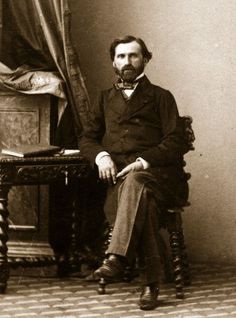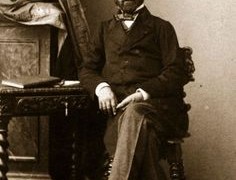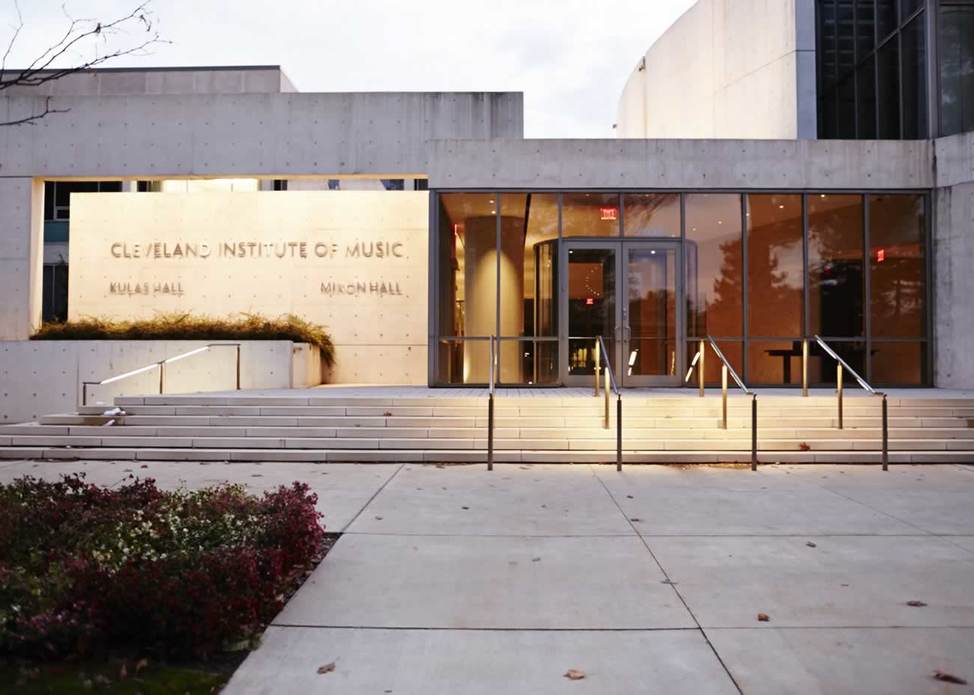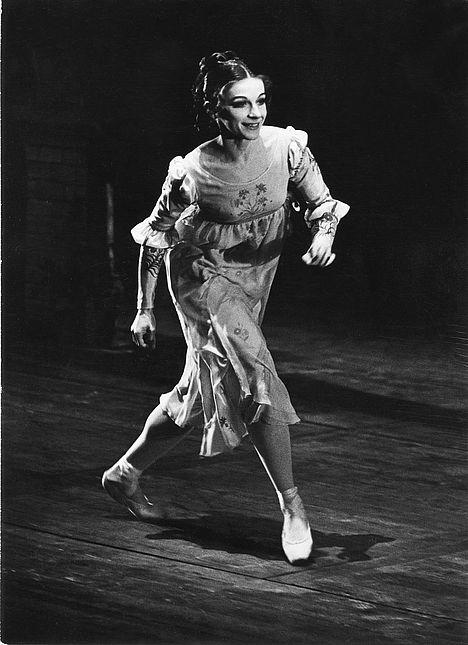Do atheists write the best sacred music?
mainFrom the Lebrecht Album of the Week:
As proof that the Devil has the best tunes, it is an established fact that atheists write the best religious music. Verdi, Elgar, Saint-Saens, Janacek, Ravel, Vaughan Williams, Britten… the list of unbelievers who wrote great sacred works extends to the limits of the known universe. And while we know little of Rossini’s state of faith, it is safe to assume that a man of his dedicated hedonism was not one of the godlier composers.
His ‘little mass’….
Read on here.

Et pour lire en francais ici:
Comme pour montrer que le diable fait ce qu’il y a de mieux, les musiciens athées composent sans contredit la meilleure musique religieuse. Verdi, Elgar, Saint-Saëns, Janáček, Ravel, Vaughan Williams, Britten… la liste des incroyants qui ont écrit de grandes œuvres sacrées s’étend jusqu’aux limites de nos connaissances. Et bien que nous ne sachions pas grand-chose des croyances de Rossini, il n’est pas fou de supposer qu’un homme aussi hédoniste n’était pas le plus dévot des compositeurs….
Lire encore ici:
See also: Is classical music Christian?






It is absolutely nonsensical to suggest that Elgar was an “unbeliever” . He was a lifelong Roman Catholic . Quite where the cited idea of his atheism came from is a mystery
According to Stephen Hough, “Over the years, Elgar’s attitude towards his Catholic faith degenerated from discomfort and indifference to fierce antipathy. On his death-bed he refused to see a priest, and asked for his cremated remains to be scattered on a favourite river”.
Well, if Elgar’s Wikipedia page is correct,
“(in 1933) He told his consulting doctor, Arthur Thomson, that he had no faith in an afterlife: “I believe there is nothing but complete oblivion.”
Maybe he just liked the mysticism, pageantry and fancy dress in Catholicism, for which there is something to be said.
What people say to their GP and what they really believe, may be very different things.
But they may not be.
Johann Sebastian Bach
Elgar’s atheism later on in life is not truly convincing. He wrote the Dream of Gerontius with deeply religious feeling. His so called atheism was a reaction to the disastrous first performance under Hans Richter’s direction.
A case can be made for Brahms and the German Requiem. I’ve read that Dvorak, among others, found Brahms lack of belief inexplicable. In the Requiem itself, there are multiple references to death but none to divinity or a divine entity. That said, the work itself clearly uses both Old & New Testament passages.
Did Ravel write any sacred works beyond a beautiful but highly stylized (it’s more of a portrait of Jewish religious music than a piece of one) Kaddish? I was under the impression that he didn’t, and in his correspondence explicitely mentioned his atheism as the reason why.
Ravel may have meant that he did not believe in catholicism, or Christianity, with their concrete orthodoxy.
I’m sure Andreas’s point is that Ravel was not a composer of sacred music at all, regardless of his state of belief.
Tallis, Palestrina, Josquin, Bach, Schutz, Messiaen, Gubaidulina, Macmillan, Part…
Monteverdi, Handel, Schubert, Mendelssohn, Dvorak, Bruckner, Poulenc, Penderecki…
Liszt was, at least late in life, a devout Catholic, but his religious music is not that good. I suppose Christus is worth an occasional hearing if a conductor is able to deal with longueurs…
I am sure I am missing a few.
Haydn, of course!
And Beethoven.
… and Stravinsky.
Stravinsky, Rachmaninov, Gorecki… And Mozart, of course!
Do you know Via Crucis and Missa Choralis?
Your unbelievers list omits Brahms and Faure, each having a requiem as magnum opus.
@Amos: Brahms was a “freethinker” all his life, of that there is no question. Bible was Western ethnic common currency, for mourning especially, and the Req was after all a work of consolation — even though by the late 1860s dissociation from Believe was well underway, at least in the upper economic regions. Brahms was well aware he was using scripture to reach mourners. He was attacked for abandoning any and all of the requiem forms, any mention of Jesus, shout-outs for resurrection &c.
I forgot to mention Martinu, whose 1939 Field Mass was and is well-known. I think but I don’t recall for sure that Smetana was an atheist. Janacek composer of The Glagolitic Mass — godless as well.
It would be easier to make a list of believing composers, active in mid-19th century and on. Dvorak deeply Christian.
I assume Bach and Mozart would be the primary points of objection, but my sense is that Bach was a “believer” in roughly the same sense as was Einstein; and as for Mozart, the letters indicate he resorted to god as an explanation for the source of creativity (especially his own).
In this light, belief becomes a matter of intellectual intuition rather than an ideological attachment to a sacred book about a big guy in the sky. Among the moderns you can sense this even more clearly: in Ligeti’s extraordinary liturgical works, and of course in the most popular and probing works of Glass: the operas Satyagraha whose text is the Bhagavad Gita and Akhnaten, whose famous hymn in Act II pairs a pharoah’s sun-worship with the text of Psalm 104 (I would also argue that much of the famous score to the experimental film Koyaanisqatsi is basically liturgical music, and it’s well known that pieces like Mad Rush were inspired by Buddhism).
Brahms wrote his Requiem as he did because he was uncomfortable with the ideological trappings of the traditional texts for such a mass. One could go on at length about this, but the core point can be more briefly made: for an artist to reject belief is not by itself a sign of atheism (which after all is just another [anti]belief system which places something like science or intellect in the same place held by God in religious systems). To place all this into a dull binary context (“Composer X is a believer or a non-believer”) really infantilizes a much more nuanced discussion.
Brian, that is a hackneyed and plain inaccurate description of atheism. As an non-believer myself I’d be amazed if any atheist would accept your description.
It’s one of the standard moves of religious believers.
I’ve actually written at length on this topic, and our argument is best had over a bottle of good wine than in the comments section of a blog. However, here’s a link to a short humor piece I wrote many years ago: http://briandonohue.org/agnosticism.html
I also tend to follow Watts and his motto “neither a believer nor an unbeliever be…” Here’s a brief discussion from one of his lectures: https://www.youtube.com/watch?v=Tav-QoYN9Mo
I strongly believe that atheism is also a faith.
It would seem that to be a successful atheist one must be acquainted with faith to begin with.
It has been wisely observed that atheism is a religion in the same manner that not collecting stamps is a hobby.
Brian, Can I suggest a different way of looking at atheism ? Think of it as a bit like not smoking. An ex-smoker or occasional smoker may always be bothered by the tension between their urges to smoke and not-smoke, and so smoking or not-smoking is as important to them as believing or not-believing is to a religious person. Someone who has never smoked never even thinks of smoking, except when suffering the fumes of those who do.
Ha, ha. That is excellent Peter.
I second symphony musician’s remark.
“if atheism is a religion, then not collecting stamps is a hobby”
(Penn Jillette)
It seems that composers don’t have to be practicing Christians to be able to write religious music, and if they were religious people but did not like to go to church, they may have seemed ‘atheist’ to the faithful. Most composers whose works are still played regularly were probably religious people, like Beethoven who hardly ever went to church, or Wagner who created his own Kunstreligion, or even Debussy who had the name of being a ‘pagan nature worshipper’ but wrote Le Martyre de St Sébastian. Only Brahms seems to have lost the faith he initially had when, later in life, he read Schopenhauer. Dvorak reports that he was stunned to find that Brahms told him that he did not believe in God and referred to Schopenhauer as an explanation. And indeed, Schopenhauer explains how and why God does not exist and why life is a tragic mistake which should never have happened.
I am racking my brains to think of what religious music Ravel had composed. Elgar, from what one gathers, wrote his great sacred works while still a believer, though he did seem lose his faith later on. Herbert Howells is a very interesting case, though: no believer, at least in a conventional sense, he nevertheless was able, perhaps, to capture the yearning for faith, forever out of reach.
Ravel wrote no Christian liturgical music. He wrote a setting of Kaddish that is amazingly beautiful and that I have used in Jewish worship a number of times. He wrote very little choral music, and the only other remotely sacred-subject piece I can think of “Là-bas, vers l’église” from the Cinq mélodies populaires grecques.
Vaughan Williams was an atheist when he wrote the Sea Symphony, a profoundly spiritual work, but later softened his stance into one of “cheerful” agnosticism which I suppose is a sort of non-belief but one that stout atheists usually reject as mealy-mouthed and tepid. And I thought Verdi was more anti-clerical than anti-religious. I would go so far as to say all composers are ‘believers’ when they compose under the spell of inspiration because they are in contact with the ineffable. Or did Brahms consider his music mere “auditory cheesecake *”?
* Steve Pinker
“I would go so far as to say all composers are ‘believers’ when they compose under the spell of inspiration because they are in contact with the ineffable.”
It would take little or no tweaking of that to conclude that everyone is a religious believer, EVERYONE.
Agreed.
For me, the most conclusive evidence of Verdi’s lack of religious faith is found in the final measures of his Te Deum. Three times a solo soprano intones “In te speravi”, the chorus repeats the phrase in a mighty E major chord, and the orchestra sinks into a somber, subdued ending in pianissimo E minor. That’s Italian for “Bah, humbug.”
Brahms wrote his German Requiem as a communal consolation for the bereaved, for bereavement. Researchers can find that, on a personal level, it might have been inspired originally by the death of Robert Schumann, or the by the death of his mother, or by the death and loss that he found around him. Unlike today’s composers, Brahms refused to publicly identify any personal source or inspiration.
He used scripture as the lingua franca of his contemporary Germans, it was that simple. His text does not gesture toward an afterlife; the work is directed at the living, and the idea time will heal, especially after a good general sob.
Hildegard of Bingen, or rather SAINT Hildegard of Bingen. Kinda beats both JSB and Messiaen doesn’t it.
Schubert, Verdi, Brahms…although perhaps they were more inclined towards a pantheistic approach, rather than a dogmatic one…
Paganini,an anticlerical who had jewish roots wrote a religious work entitled Le Couvent de Mont St Bernard for men’s chorus and orchestra and solo violin. It’s on the youtube.
We have Bach and Messiaen. This invalidates the question.
Absolute nonsense to say that it is an established fact that atheists wrote the best religious music when JSB wrote the greatest religious music of all ‘for the glory of God’.
True, but there is a line at right angles to the arrow of time on this question; composers after Beethoven who we consider great today, are more likely than not to be non-religious.
Also, deaf composers write the best string quartets.
Weird that nobody mentioned Berlioz. And no, because of Bach, nobody can ever claim that atheists wrote the best religious music.
John Rutter’s attitude towards Christianity is, to say the least, ambivalent yet it has provided him with an exceptional career.
As a composer, the faith market is just one among many. Regardless of their religious views they’d have been silly to disregard it.
Precisely.
And even Bach, with his unmatched dedication to Lutheran observance, composed a Catholic mass.
André Campra was an atheist. He worked in Notre Dame and wrote the music for the erotic ballet opera L´Europe galante.
While I’m sure some would not agree with this (assuming they even know the work and the performance I reference), if I had to pick a single “greatest” religious work, my vote would be Anton Bruckner’s Mass #1 in d-minor. It received the performance of a lifetome from Eugen Jochum with the Bavarian Radio Symphony Orchestra and Chorus. Other performances don’t generally convey the magnificence of this work, but as heard in Jochum’s astonishing performance, it is to these ears the greatest religious work ever written by anyone. As much as I love the German Requiem and a number of the other works mentioned here, there is one other that towers above them all.
You can say one thing for organists: even the most hardened atheists among them are regular church-goers.
There should be a careful distinguishing between atheist and agnostic – Vaughan Williams was a self proclaimed agnostic. In terms of how these composers can write such great music on religious words, one should note that at least in Catholicism the whole Mass and story of salvation is often referred to as “the drama” – hence if a composer can write a great opera, s/he can tune into this drama and make an almost operatic statement.
Ever heard of J.S. Bach? A devout Christian and nobody but a fool would contest his is not the greatest sacred music. Arguably, his entire output, sacred or secular, is to the glory of God, believe or not.
Elgar was hardly an unbeliever – brought up a Catholic and only wavered a bit towards the end of his life after his wife, a staunch Catholic convert had died but his daughter, who he loved dearly, kept the faith right up to her death in 1970 and influenced her father to adhere to the basics until his death in 1934.
James MacMillan is a devout Catholic.
Is there maybe a category error underlying this observation ?
Would you expect the best ballets to be written by dancers ? Or the best who-dunnit novels to be written by detectives ? The best sci-fi films made by aliens or scientists.
I would suggest that the best sacred music is written by composers who are skilled at imagining and conveying particular emotions.
” it is an established fact that atheists write the best religious music”
Finally! I can throw all my Josquin, Monteverdi, Handel, Bach and Bruckner in the trash now that you have condescended to reveal this amazing fact!
I have never met a real artist who is religious. Too busy to be bothered with the nonsense of it all. Even the religious songsters in Nashville are atheists. A friend of mine did a religious album and has been a non-believer simply because he doesn’t bother. He just lives his life and doesn’t fluff it up with the ridiculousness that is religion. Still can’t believe people believe in god and all that to this day. But, look at politics.
What about Leonard Bernstein? He certainly did not believe in Catholicism when he wrote his mass
Nor did he believe in good music when he wrote Mass.
Atheist and agnostics can be at least as spiritual as believers, if not more so. Whose more likely to write a great love song full of deep yearning, the guy/gal in love or the person who isn’t?